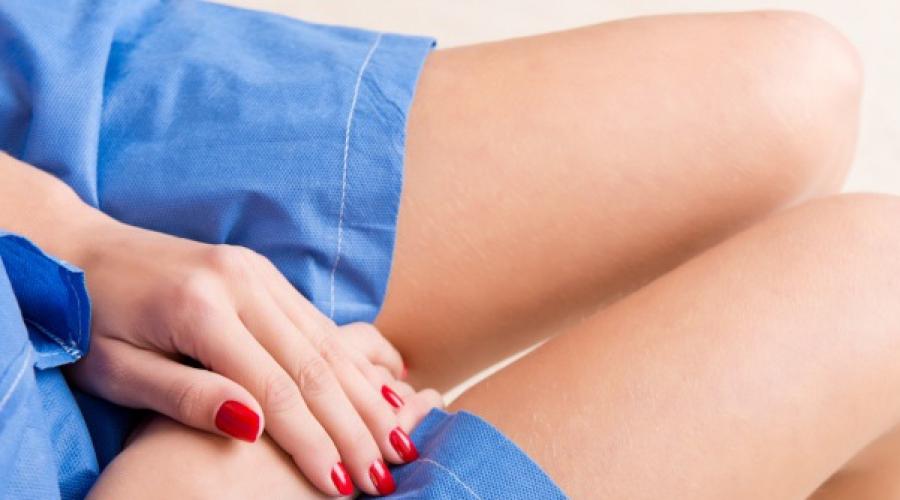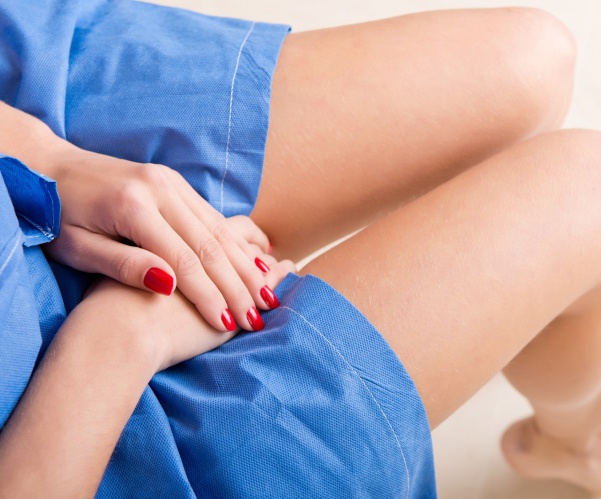How and when to use baking soda

If health problems arise, unpleasant or painful symptoms appear, complex treatment is carried out using special washings, douches and baths. One of these methods is washing with soda.
Despite the opinion of most women that they observe the rules of personal hygiene, this is not always the case. Ladies of different ages are increasingly taking a bath or shower, forgetting about the washing procedure. Previously, more attention was paid to this issue, because hygiene is the key to women's health. On the shelves of shops and pharmacies, you can find a lot of products designed specifically for intimate hygiene, and earlier these functions were performed by decoctions of herbs, homemade soap and ordinary soda. They are used to seeing the latter product in the kitchen, and after all, washing with soda is one of the ways to cope with thrush, its beneficial properties in the fight against cystitis have long been known. But you need to remember about the harm that procedures can provoke, as well as be aware of the precautions if such a self-care method was chosen.
In what cases are washed with soda
Personal hygiene of the genital organs is used for the purpose of prevention and recovery. Washing according to the rules is done only with warm water without the use of cosmetics and soap. For a healthy woman, this is enough to maintain cleanliness and personal hygiene. Using soap can dry out or damage the skin on the vulva.
If there are problems with intimate health, unpleasant symptoms appear, to remove them, a complex treatment is carried out using washings, douches and baths. One of these methods is washing with soda. It helps with itching in the perineum, with seborrheic dermatitis, fungal infections, in particular, thrush, as well as with inflammatory processes. Some use a soda solution for the prevention of these disorders.
Most women, before washing with soda, think about whether it is possible to be treated this way, whether these procedures are safe, why risk their health. The opinions of experts differ, but one thing is for sure - the reaction of the body is individual and the diseases, as well as their nature, are different, therefore, the doctor together with the patient should make a decision on treatment with non-traditional methods.
Contraindications for washing with soda
These include individual intolerance, susceptibility to allergic reactions. Women with impaired microflora, as well as pregnant women and teenage girls, use soda solutions with caution.
External use of sodium bicarbonate can cause burns to the genital mucosa. Often rinsing and douching with soda causes irritation and only exacerbates itching, burning and other uncomfortable sensations. Eczema is also a contraindication: you can damage the vesicles that occur during illness and disrupt the integrity of the skin - the affected area after such a procedure itches more.
We must not forget that soda changes the microflora of a woman and can cause complication of current diseases or cause new disorders.
Is it justified to use soda for itching in the genitals
The penetration of an infection, a violation of the microflora, in addition to inflammatory processes that are so dangerous for women's health, causes a lot of unpleasant symptoms that cause severe discomfort.
Burning and itching are one of the signs of sexual disorders. With this piquant problem, women do not rush to the doctor, and decide to cope with the discomfort at home, using improvised folk methods. One of them has been a soda solution for many years, but this is not the most reliable and safe way. After all, itching can be suppressed, for example, with atopic dermatitis for a while, and the cause of its appearance cannot be eliminated in this way.

Itching in the perineum is caused by the following reasons:
- sexually transmitted infections;
- wearing uncomfortable or synthetic underwear;
- the use of various cosmetics for intimate hygiene;
- psychological disorders;
- diseases of internal organs;
- viral lesions such as herpes;
- fungal infections;
- hormonal fluctuations.
So if the symptoms are the result of wearing nice but uncomfortable underwear or choosing a scented soap that can cause an allergic reaction, washing with baking soda for itching from hives is only a temporary measure.
It is impossible to self-medicate without establishing a diagnosis, because by suppressing the symptoms of the disease, women only delay treatment, and the disease progresses all this time. Is it possible to wash with soda, only a specialist can say!
Douching with soda solution
Unlike simple washes, deep soda applications can be dangerous. With a fungal infection, all known as thrush, rinsing the external genital organs alone is not enough. If you take precautions and do not inject the syringe too deeply, and make the pressure of the solution moderate so that the liquid does not penetrate into the uterus, soda douching relieves the symptoms of the disease. Otherwise, it is possible that the infection will spread higher: into the uterus, tubes, further.
Baths for washing
Safer, but no less effective, are special baths using soda. They help neutralize the acidic reaction in the vagina, creating an environment unfavorable for pathogens.
To prepare the bath, dilute 1 tablespoon of baking soda in 2 liters of water. This solution is added when bathing in a bath. In this amount, soda from hives and itching in the perineum will not have an aggressive effect, and without a deep effect, as with douching, there is no risk of damaging the mucous membrane or driving the infection deeper.

Decoctions of medicinal herbs are added to soda baths, which only benefits. For example, chamomile soothes and prevents overdrying, and also helps with itchy skin. The bath allows you to treat the mucous membranes and the external area of the genital organs without pressure and the risk of damage.
Soda for thrush
Most often, sodium bicarbonate is used to combat thrush and its symptoms. The fungus Candida, which provokes the development of the disease, can only live in an acidic environment. The intimate zone of a woman is an ideal place for its reproduction. In order for microorganisms to cease to exist, it is necessary to increase the acidity, which is what soda does. Sodium bicarbonate is very good for itching.
If the thrush has already begun, washing alone cannot cope with it, but you can suppress unpleasant symptoms and discomfort. Itching, burning and "curd" discharge will decrease after 1-2 applications.
When choosing between external applications and douching, it is better to stop at the first option - with the pressure of water, you can drive the fungus further into the uterus and appendages.
Washing with baking soda during pregnancy
During the bearing of a child, a woman weakens, protective functions decrease, and chronic diseases become more active. Most often, pregnant women are affected by vaginal candidiasis. Antifungal drugs are not always allowed during this period, as they have a negative effect on the fetus, so more and more women are interested in how to cope with the fungus without drug treatment, is it possible to use soda.
The recipe for preparing a soda solution for a pregnant woman does not differ from the traditional one. But before washing, you need to consult with your doctor and clarify how to do the procedures correctly.

A solution of soda can adversely affect the health of the mother and unborn child, since the microflora of the vagina is very vulnerable during pregnancy. The most gentle method is washing, but douching with soda should be excluded. With or without it, water pressure can cause premature birth, the child will die or be born prematurely. Too hot baths also negatively affect the development of pregnancy.
Is it possible to wash with soda during menstruation
After considering all the useful properties and contraindications, one question remains: is it possible to use this method during menstruation.
From a medical point of view, washing with soda during menstruation is not prohibited, but not recommended. The acidic environment in the vagina is already alkalized by menstrual flow - this is a normal physiological process. If you increase the acidity even more with a soda solution, the vagina will become a favorable environment for the reproduction of opportunistic bacteria, the activity of which was previously suppressed by the acidic environment, the mucous membrane will become vulnerable.
Washing with soda for cystitis
Sodium bicarbonate is used to suppress the symptoms of cystitis. In women, it develops when pathogenic microorganisms penetrate from the intestines to the genitals and into the cavity of the bladder. Acute cystitis does not tolerate self-treatment and requires immediate medical attention, but if the signs of the disease are not very pronounced, non-traditional methods are used.
Washing with soda gives the following effects:
- helps relieve pain;
- suppresses burning, discomfort;
- prevents the addition of other infections.
Application for infertility
Often soda is used as an aid to conception. The environment in the woman's vagina is acidic, and the seminal fluid is alkaline, so spermatozoa can become inactive or die before meeting the egg. Increased acidity is an obstacle to conception - soda suppresses too acidic environment and eliminates negative changes in microflora.
To achieve the desired effect, a woman planning a pregnancy monitors ovulation and, when it approaches, begins to wash with soda in 3-4 days.
Can baking soda be harmful?
Sodium bicarbonate is an affordable substance that any housewife has in the kitchen. But if you do not take precautions and often resort to soda washing, you can cause significant harm to health, the intimate sphere will suffer.
Often a woman copes with itching and discomfort, but do not forget: soda will not cure, will not eliminate their cause. In addition, a sodium bicarbonate solution leads to a steady change in acidity - the intimate area after douching with soda loses its natural protection and is exposed to infections.